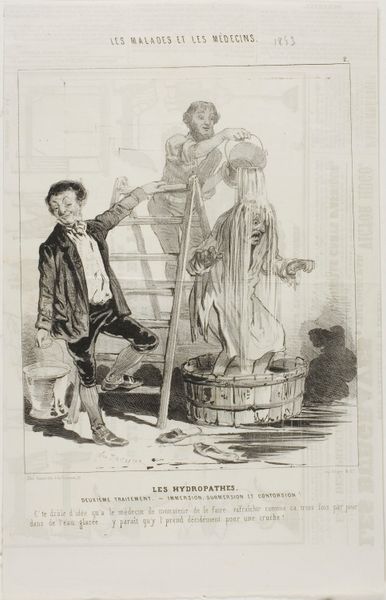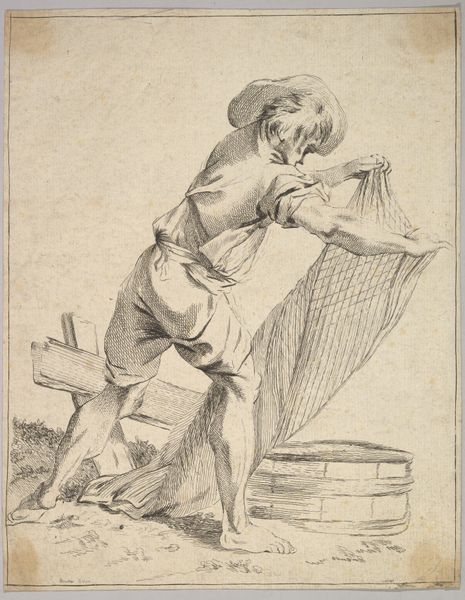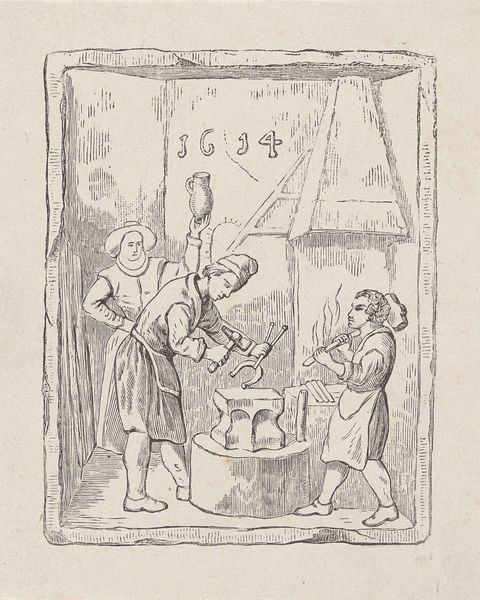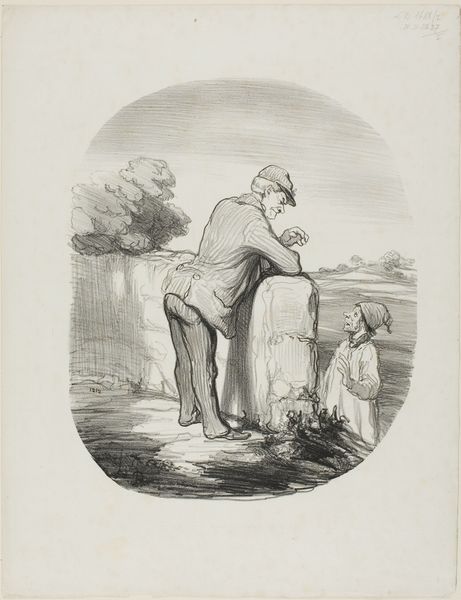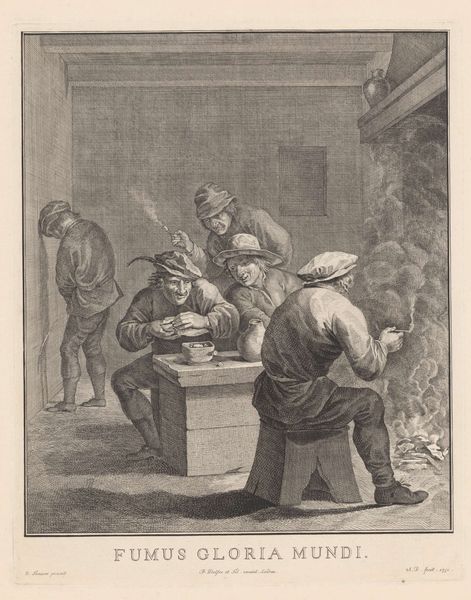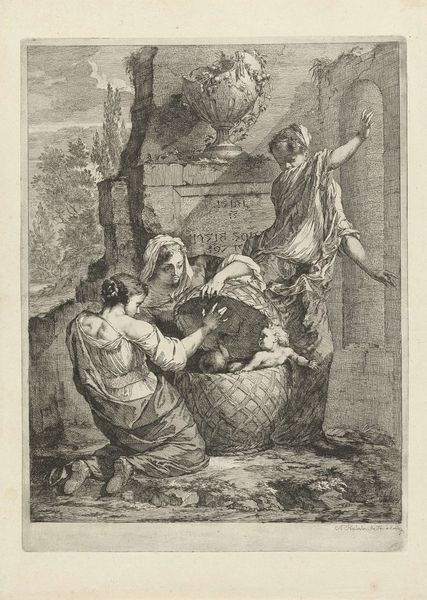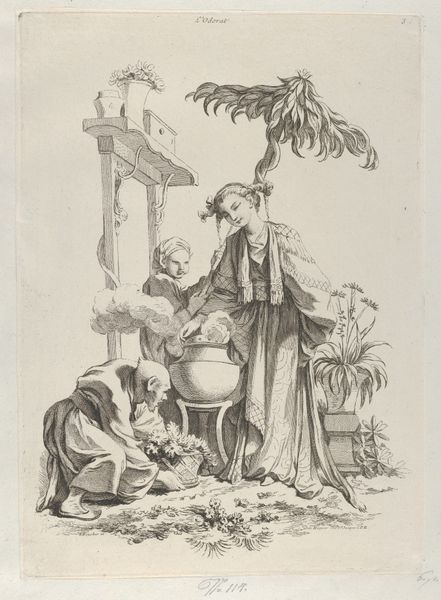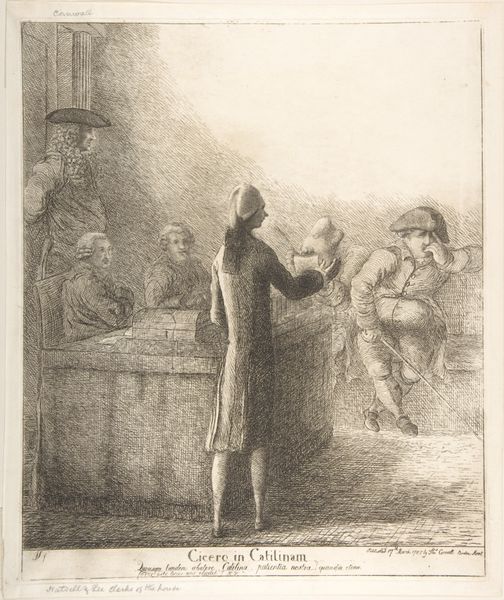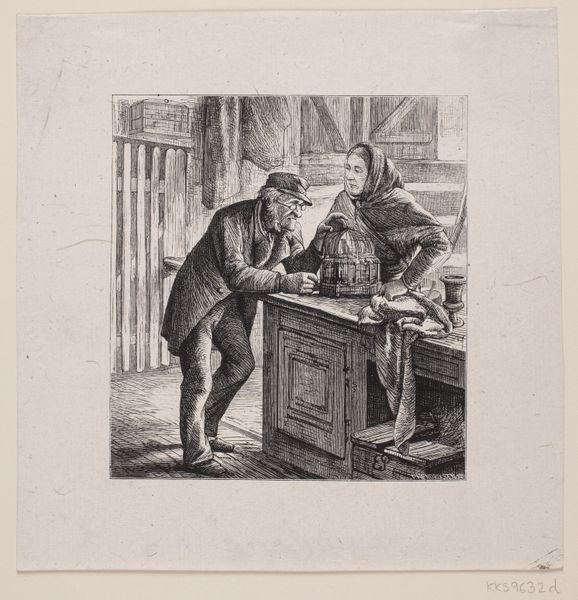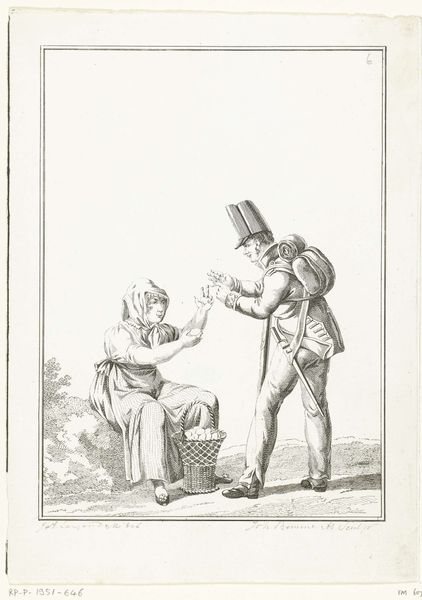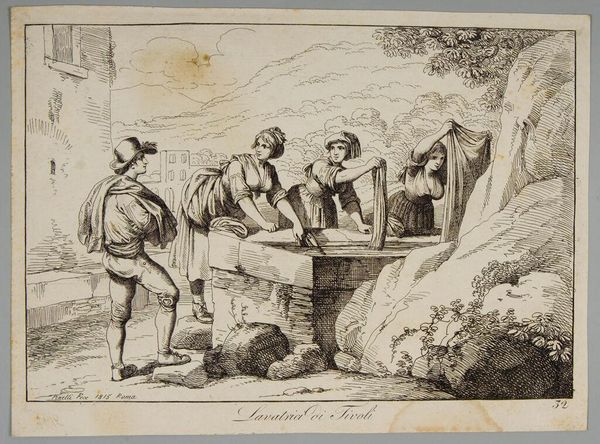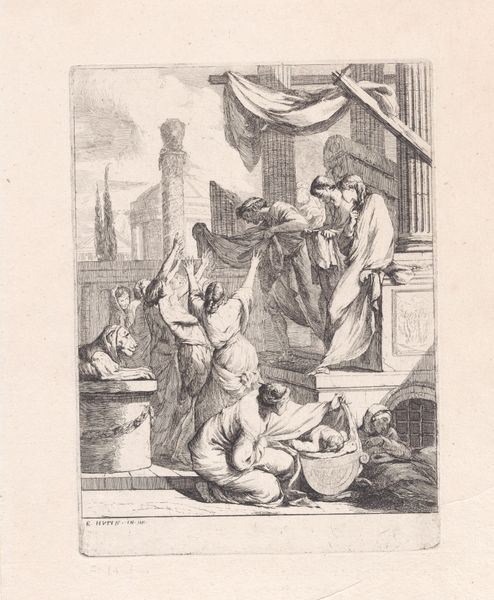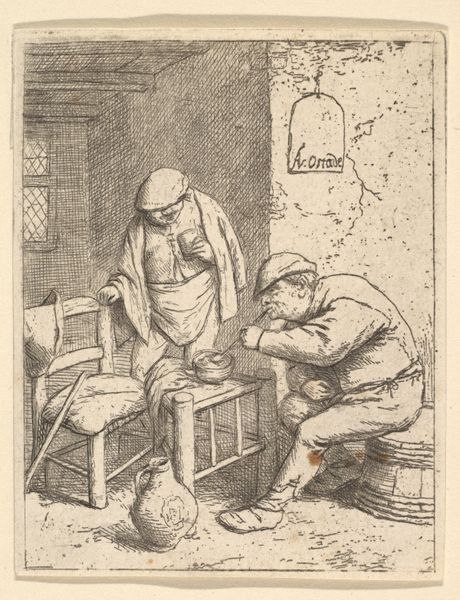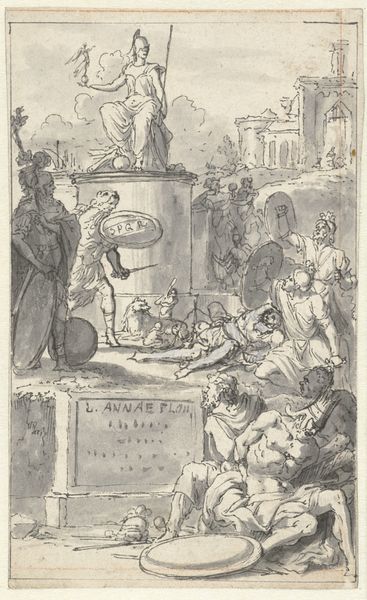
Dimensions: height 381 mm, width 376 mm
Copyright: Rijks Museum: Open Domain
This print, "Tekenkunst maakt een anatomische studie," was made by Jan Punt in the 18th century. It's made of ink on paper using the technique of etching, which is an indirect process. The artist protects a metal plate with wax, then scratches through it, and immerses the plate in acid. The acid bites the exposed lines, creating grooves that hold ink. Looking closely, you can see the precision required, each line carefully considered. In Punt's time, printmaking was essential for disseminating knowledge, with complex imagery able to be efficiently manufactured. This was critical for the rise of the Enlightenment, and the study of things like human anatomy. Here we see the artist as a producer, not just of a single artwork but as a distributor of information. The very graphic nature of the artwork underscores its role in circulating ideas, and how it contributes to the wider sphere of knowledge and learning.
Comments
No comments
Be the first to comment and join the conversation on the ultimate creative platform.
